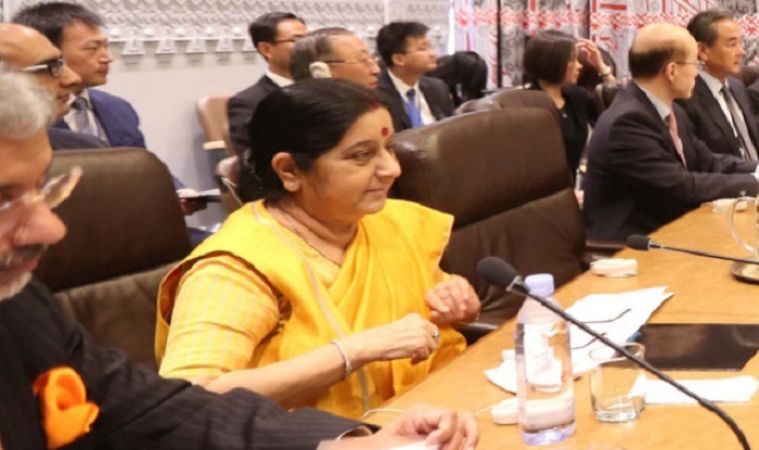
India, Bangladesh and Afghanistan had pull out of the 2016 SAARC summit allude to Pakistan's open support to terror.
SAARC summits are generally held in November
NEW DELHI: For the second year in a row, there may be no SAARC summit. India, Bangladesh and Afghanistan had pulled out of the 2016 SAARC summit allude to Pakistan's open support to terror that impacted all three countries. Islamabad was supposed to host the 2016 summit, which had to be called off. This year too, there appears to be no move to hold the summit. SAARC summits are generally held in November.
Since Sushma Swaraj met SAARC foreign ministers in New York on the tangential of the UN General Assembly session, India's lack of concern in the summit was evident, which has resulted in a downgrading of the institution where India plays the lead role. With India-Pakistan bilateral relations in free-fall, it has had an impact on the South Asian body.
Swaraj did not refer to the qualms of the SAARC summit, but frazzled the primacy given to removal of terrorism. "Regional prosperity, connectivity and cooperation can take place only in an ambiance of peace and security. It, however, remains at serious risk in the region... It is necessary for our region's endurance that we get rid of the scourge of terrorism in all its forms, without any prejudice, and end the ecosystem of its support," she said.
Swaraj added that SAARC had unsuccessful to live up to its objectives, without a free trade arrangement in place, or any agreement on trade in services etc, which really makes South Asia one of the least connected regions in the world. She listed the projects undertaken by India under the SAARC rubric. She said, "The South Asia Satellite, a first-of-its- kind initiative, was launched in May 2017. The project will lay a hand on the lives of the people in the region through its wide-ranging applications."
Instead, India has breathed new oomph into BIMSTEC, by involving almost all South Asian nations in it, with the eye-catching absence of Pakistan. In addition, the BBIN (Bangladesh, Bhutan, India, and Nepal) sub-grouping is creating physical connectivity, along with rail and power-sharing systems, into a new form of cooperation.
read also
Leander Paes and Purav Raja reached to semi-finals of St. Petersburg Open Tennis
Why 40,000 drivers lose License to Roam In London
China rebuffs Pakistan on Kashmir issue